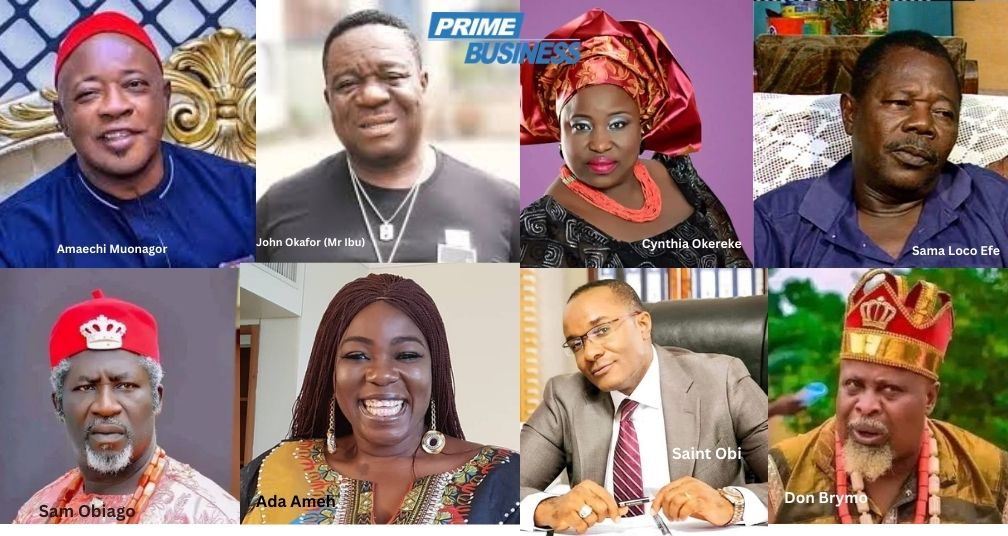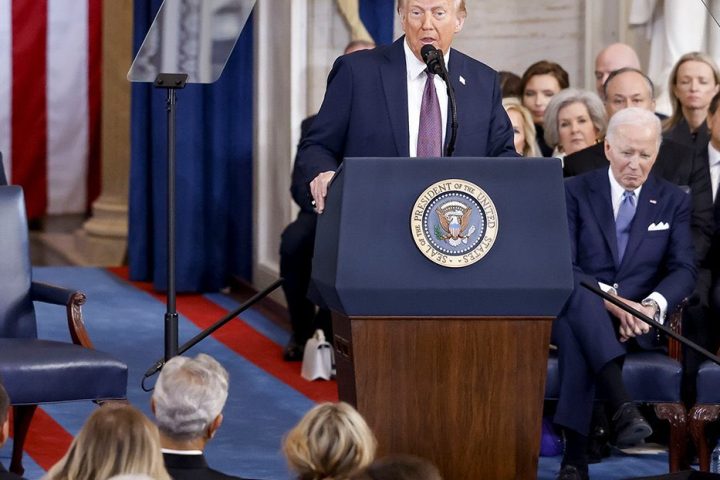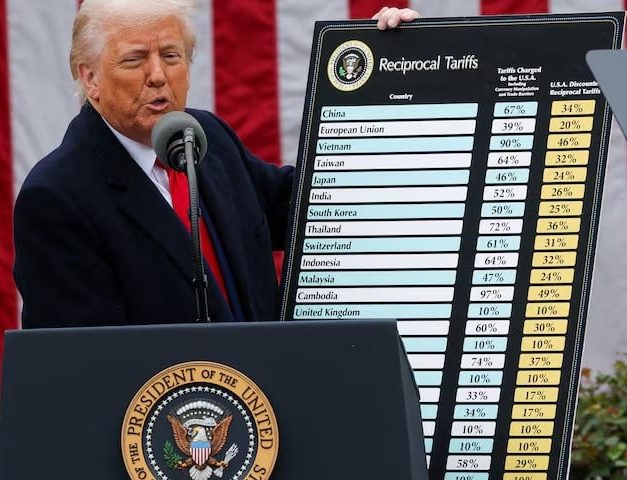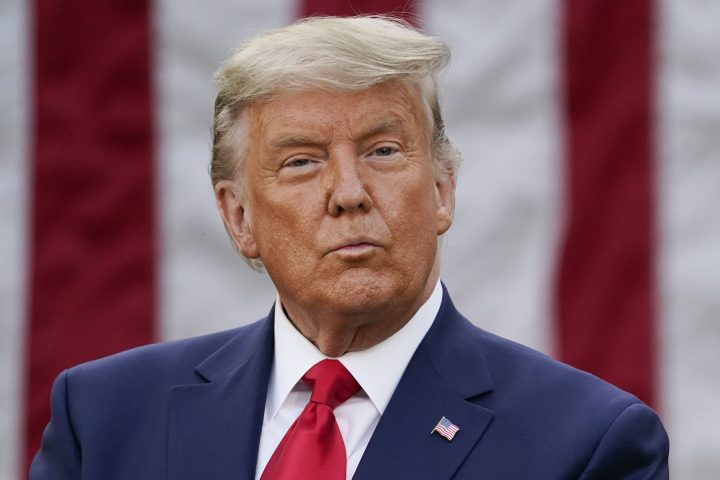On Sunday, March 24, another ugly piece of news broke that popular Nollywood actor, Amaechi Muonagor, had died. Mounagor’s death comes just three weeks after ace actor, John Okafor, was pronounced dead. Muonagor’s death also makes it at least the 5th Nollywood death in the first quarter of 2024 and about the 32nd death in Nollywood since 2011. As of March 2024, the following actors were dead: Deji Aderemi (Olofa Ina), Ethel Ekpe, Tolani Quadiri Oyebamji (Sisi Quadiri), John Okafor (Mr Ibu), and Amaechi Muonagor. This is almost reminiscent of 2023 when three Nollywood actors died within one week – Saint Obi, Murphy Afolabi, and Adedigba Mukalia (aka Alafinn Oro).
Sadly, the average age of these actors at death was about 40 years, making most of the deaths clearly untimely. Like Nollywood, India’s Bollywood lost at least 55 actors between 2000 and 2023, with 15 deaths in 2023 alone. Considering that India’s population is about 5 times higher than Nigeria’s, it will be safe to say the Nollywood deaths are far higher.
Join our WhatsApp ChannelMost often news of Nollywood deaths often end with expressions of shock and profuse dirges for the loss of irreplaceable actors. Nigerians, especially the Nollywood industry should move beyond this. It is not illogical to suspect something sinister or obvious in this gale of deaths. If not, the multibillion naira industry itself will meet its own untimely death.
Nollywood must take a good look at some flashpoints, for example, fame management, job risks and hazards, poverty and lifestyle, including eating, drinking and smoking. In a study, George Smith, a professor of epidemiology in the US, found that drugs, drinks, sex, violence, monstrous egos, gangsterism, speed, and madness lead to premature deaths of many stars. Some of these are the chief causes of suicides among film actors. Smith writes that suicides reveal the roller-coaster nature of fame. The 20 deaths in Hollywood and the music industry in the US between 2010 and 2020 were likened to opulent lifestyles and terminal diseases such as liver disease and cancer.
Some have pointed to interpersonal relations among actors and the associated dilemma of trust vis a vis Africa’s well-known orientation to suicidal tussles over acting roles. It is not unheard of for groups such as business people and market men and women to take strong (sometimes extramundane) steps to entrench mutual trust in daily business interrelationships and risks. In the Nigerian brand of Catholicism and Pentecostalism, some priests and pastors have become reputed for mediating in such searches for mutually assured safety (MAS) in business relationships. Stories have been told about how deaths ceased to be a weekly announcement in some markets in Nigeria.
Food and dieting is yet another reported point of deadly contact between actors. The physical appearance of many (of the dead) actors in terms of stomach and waist suggest extra-obese tendencies. Spending days and weeks, even months outside the home due to shooting trips means that actors are exposed to fast foods and other out-of-home dishes, with their stories about poison, nutrition and hygiene. Such out-of-home routines also expose actors to temptations of infidelity, thanks to the temptatious (to quote the late Sam Loco Efe) array of beauties on stage. Moreover, how protected are the actors for sexual emergencies and pressures?
We may also not know that long hours of shooting films come with dangers of stress from memorizing lines, risks of losing roles to competitors, repeating scenes sometimes under intense heat and getting poor sleep and exercise. These have very close relationship with depression and general mental health. It is the cause of drunken orgies, gluttony, and suicide.
The usual outcome is marital problems for which actors are known the world over. The entertainment industry has the highest known cases of divorce and separations. Researcher Allistair Thompson once reported a finding from a Marriage Foundation, which showed that the celebrity divorce rate was 67% higher than other couples. In Nigeria, one of the most viral social media phenomena of the past two years has involved marital drama among film actors, the most prominent of which concerns Yul Edochie, his estranged wife, May, and Juddy Austin,
Indeed, one thing must kill a man, but, all these combined appear to be killing actors faster. Nollywood must act now, beginning with properly organizing the industry and positioning it for an in-house retreat. Nollywood appears to be in dire straits. For instance, sickness has bared the fangs in the industry, betraying how poor most actors really are despite the glamour of television and red carpets. There is an urgent need for introspection.
Furthermore, if indeed the film industry is part of society that fulfils a major role, government can help out. Piracy and film pilfering by satellite television stations and social media platforms must be addressed. Governments at all levels can work through the ministries of culture and entertainment to re-organize the film industry to make it a living phenomenon. Enough of the deaths.
Dr Mbamalu, a Jefferson Fellow, is an Editor, Publisher and Communications Consultant. Follow on X: @marcelmbamalu
Dr. Marcel Mbamalu is a communication scholar, journalist and entrepreneur. He holds a Ph.D in Mass Communication from the University of Nigeria, Nsukka and is the Chief Executive Officer Newstide Publications, the publishers of Prime Business Africa.
A seasoned journalist, he horned his journalism skills at The Guardian Newspaper, rising to the position of News Editor at the flagship of the Nigerian press. He has garnered multidisciplinary experience in marketing communication, public relations and media research, helping clients to deliver bespoke campaigns within Nigeria and across Africa.
He has built an expansive network in the media and has served as a media trainer for World Health Organisation (WHO) at various times in Northeast Nigeria. He has attended numerous media trainings, including the Bloomberg Financial Journalism Training and Reuters/AfDB training on Effective Coverage of Infrastructural Development of Africa.
A versatile media expert, he won the Jefferson Fellowship in 2023 as the sole Africa representative on the program. Dr Mbamalu was part of a global media team that covered the 2020 United State’s Presidential election. As Africa's sole representative in the 2023 Jefferson Fellowships, Dr Mbamalu was selected to tour the United States and Asia (Japan and Hong Kong) as part of a 12-man global team of journalists on a travel grant to report on inclusion, income gaps and migration issues between the US and Asia.

















Follow Us